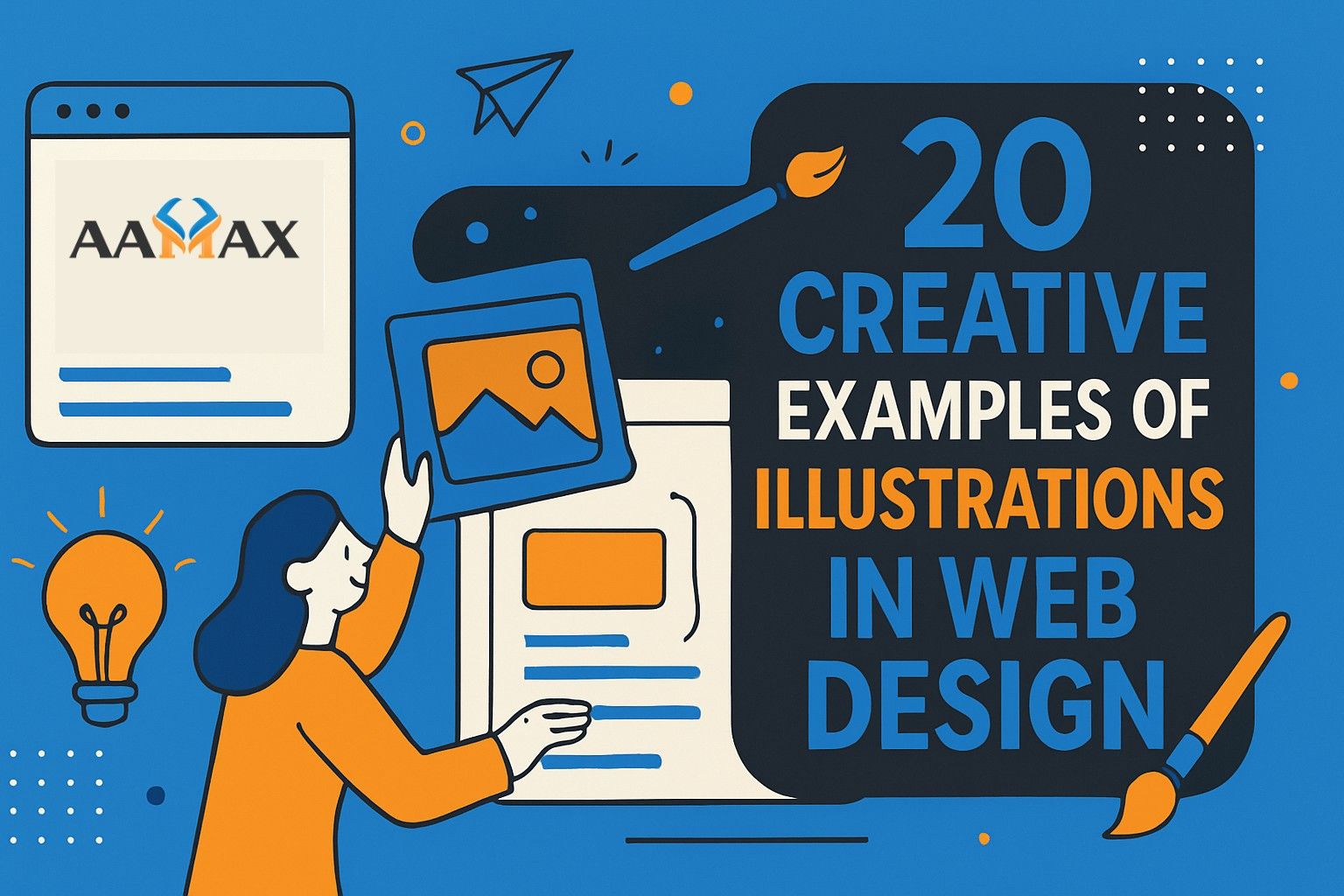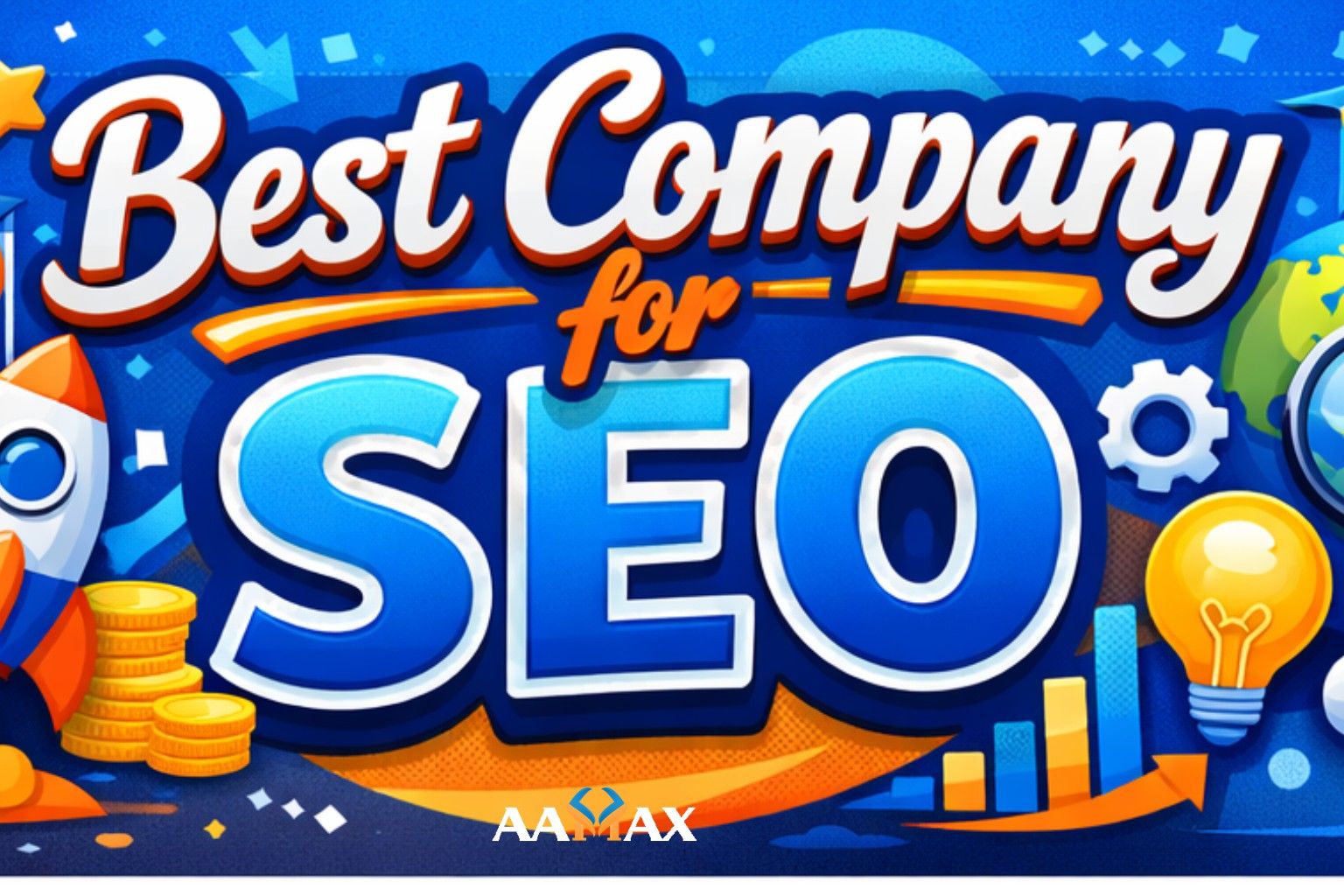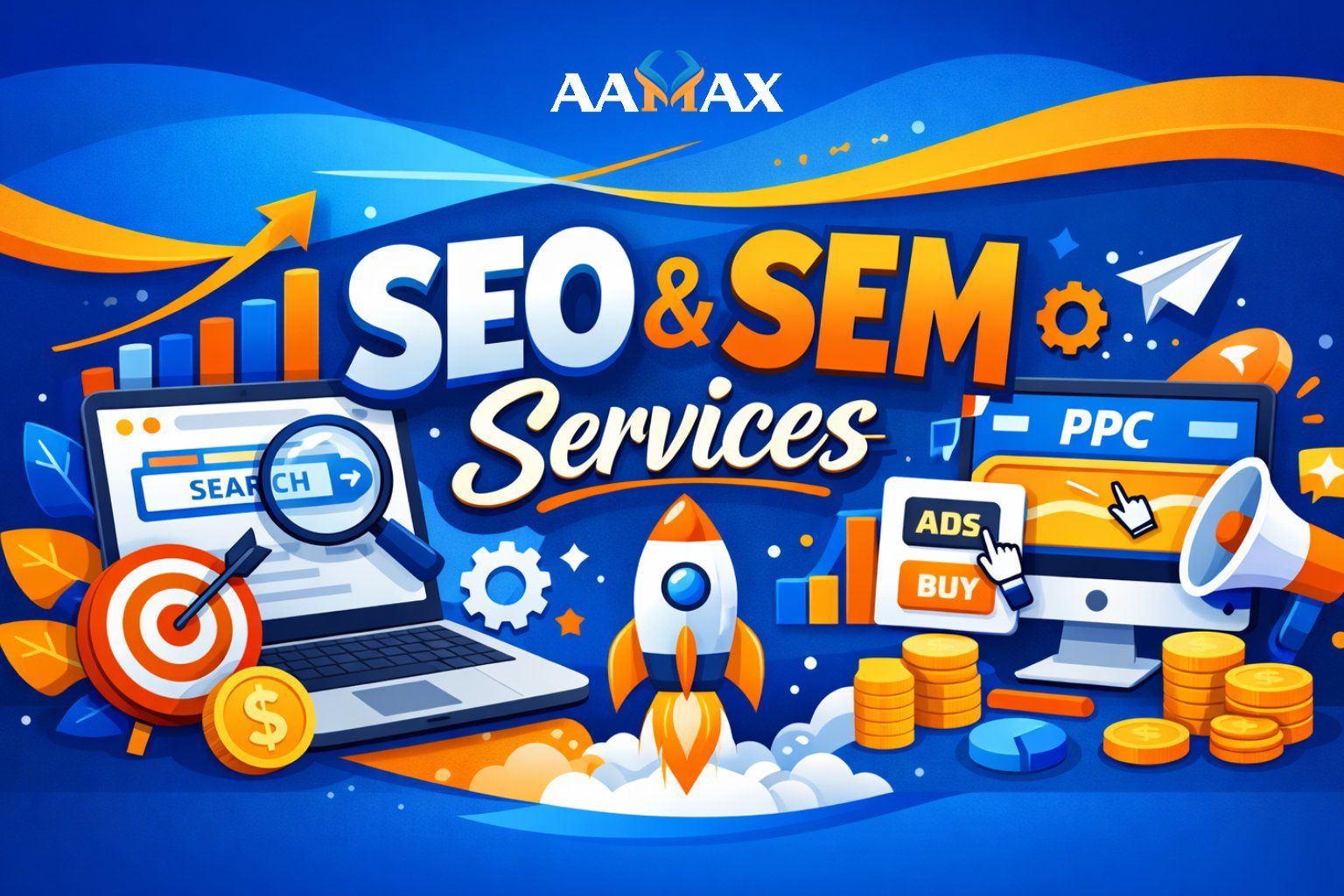
20 Creative Examples of Illustrations in Web Design
Web design has evolved far beyond simple layouts and plain text. In today’s digital landscape, illustrations play a key role in making websites stand out. From custom artwork to interactive illustrations, businesses and designers use visuals to express creativity, tell stories, and connect emotionally with visitors.
Unlike stock photos or generic graphics, Web design add a personal and memorable touch to web design. They can set the mood, build brand identity, and make complex concepts easy to understand.
In this article, we’ll explore 20 creative examples of illustrations in web design that showcase how brands leverage art to engage users and enhance their digital presence. These examples highlight the growing importance of visual storytelling in creating modern websites.
Why Illustrations Matter in Web Design
Illustrations are more than decorative elements. They serve strategic purposes, such as:
- Brand differentiation: Unique art makes your website memorable.
- Emotional connection: Custom drawings evoke feelings better than stock images.
- Clarity and storytelling: Illustrations can explain abstract ideas visually.
- Playfulness and engagement: They add personality and fun to the user experience.
- Consistency: Tailored illustrations maintain a cohesive visual identity.
Now, let’s dive into real-world examples.
1. Mailchimp’s Whimsical Characters
Mailchimp’s website is famous for its quirky, hand-drawn illustrations. The playful characters reflect the brand’s approachable, creative personality while guiding users through features in a friendly way.
2. Dropbox’s Abstract Art
Dropbox often uses abstract, colorful illustrations to simplify the idea of cloud storage and collaboration. These visuals make technical concepts feel more accessible and human-centered.
3. Slack’s Collaborative Scenes
Slack integrates illustrations that depict teams working together in fun, imaginative ways. This design reinforces their brand message of simplifying communication.
4. Headspace’s Calming Characters
Headspace, a meditation app, uses soft, rounded illustrations to create a sense of calm. Their visuals align with the brand’s mission of reducing stress and promoting mindfulness.
5. Stripe’s Technical Illustrations
Stripe incorporates sleek, geometric illustrations to explain payment processing. These visuals make complex financial systems easier to understand while keeping the design modern.
6. Spotify Wrapped Graphics
Spotify’s year-end Wrapped feature uses bold, dynamic illustrations and colorful visuals to personalize the experience, making users feel part of the brand story.
7. Airbnb’s Destination Sketches
Airbnb uses hand-drawn illustrations of destinations, homes, and experiences. These visuals add a human touch and make browsing feel like flipping through a travel journal.
8. Asana’s Workflow Illustrations
Asana combines geometric patterns and abstract illustrations to demonstrate project management processes. This makes the product’s functionality visually engaging.
9. Trello’s Cartoon-Like Characters
Trello uses friendly illustrations of characters and objects to bring life to task management. These fun visuals make productivity tools less intimidating.
10. Shopify’s Storytelling Illustrations
Shopify integrates illustrations that highlight entrepreneurs and small businesses. Their artwork emphasizes empowerment and creativity.
11. Notion’s Minimalist Icons
Notion’s illustrations are minimal yet powerful. Their sleek line art and subtle color palettes reinforce simplicity and organization.
12. Duolingo’s Mascot Duo
Duolingo’s owl mascot is an excellent example of illustration in branding. Its playful animations and appearances across the site motivate learners and create recognition.
13. Figma’s Collaborative Illustrations
Figma uses abstract illustrations of people working together to emphasize collaboration. The design echoes their tool’s purpose: teamwork in design.
14. Google Doodle-Inspired Artwork
Google often transforms its homepage with doodles. Many web projects inspired by Google integrate illustration styles that combine fun, creativity, and interactivity.
15. Dribbble’s Creative Community Illustrations
Dribbble highlights artistic illustrations that celebrate its design community. The visuals showcase creativity and align with the platform’s mission.
16. Dropbox Paper’s Playful Illustrations
Dropbox Paper’s website uses vibrant, whimsical illustrations to highlight teamwork. These visuals convey energy and creativity in content collaboration.
17. Medium’s Editorial Illustrations
Medium often pairs stories with custom editorial illustrations. These unique visuals enrich the reading experience and elevate content presentation.
18. Uber’s Sleek Illustrations
Uber’s design language incorporates clean, geometric illustrations for cityscapes and mobility solutions, aligning with its futuristic vision.
19. GitHub’s Octocat
GitHub’s Octocat is one of the most recognizable mascots in web design. The illustrated character makes the technical world of coding approachable and fun.
20. Dropbox Showcase Examples
Dropbox frequently experiments with different illustration styles—from flat art to 3D-inspired designs—showing versatility in how illustrations can adapt to campaigns.
Key Lessons from These Examples
By reviewing these 20 examples, we can extract a few key lessons:
- Stay authentic: Use illustrations that reflect your brand’s personality.
- Simplify complexity: Abstract or technical ideas are easier to grasp with visuals.
- Create emotional impact: Playful or calming illustrations connect on a deeper level.
- Think interactive: Adding motion or interactivity can increase engagement.
- Prioritize consistency: A unified illustration style builds brand recognition.
Types of Illustrations Commonly Used in Web Design
Illustrations come in many forms. Some of the most popular include:
- Flat design illustrations – simple and modern.
- Hand-drawn artwork – personal and authentic.
- 3D illustrations – futuristic and engaging.
- Mascots/characters – create relatability and memorability.
- Abstract visuals – good for conceptual ideas.
Tips for Incorporating Illustrations in Web Design
If you’re considering adding illustrations to your website, keep these best practices in mind:
- Align illustrations with your brand’s tone and audience.
- Avoid clutter—let visuals complement, not overwhelm.
- Use responsive illustrations that adapt across devices.
- Test different styles to see what resonates with users.
- Pair visuals with strong copy and CTAs.
The Future of Illustrations in Web Design
With advances in digital tools, illustrations are becoming more interactive, animated, and personalized. Expect to see more motion graphics, AI-generated illustrations, and immersive visuals as brands push creative boundaries.
Final Thoughts
Illustrations in web design are not just aesthetic choices—they are strategic tools for communication, branding, and user engagement. The 20 creative examples shared above prove how powerful illustrations can be in shaping perception and elevating digital experiences.
If you’re ready to enhance your web presence with stunning visuals and effective digital strategies, consider working with professionals like AAMAX. AAMAX is a full-service digital marketing company offering Web Development, Digital Marketing, and SEO Services. With the right design and marketing approach, your website can leave a lasting impression and drive measurable results.







